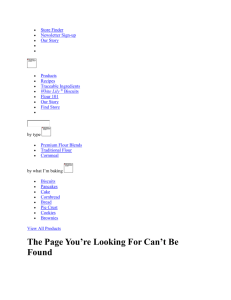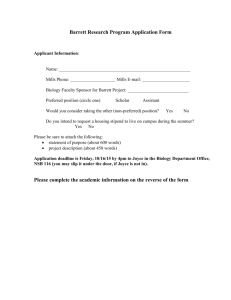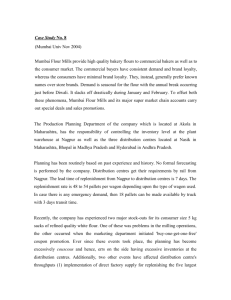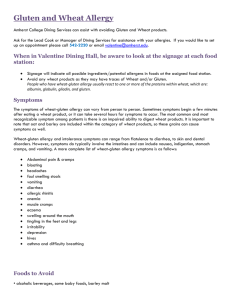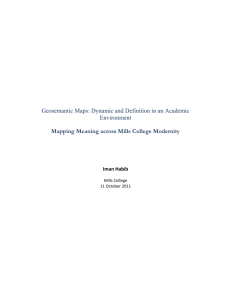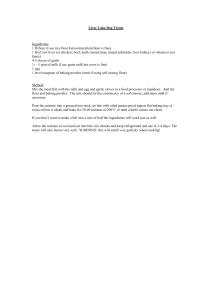Ranks Brochure- Dr Edward Whelan Ranks during World War II In
advertisement
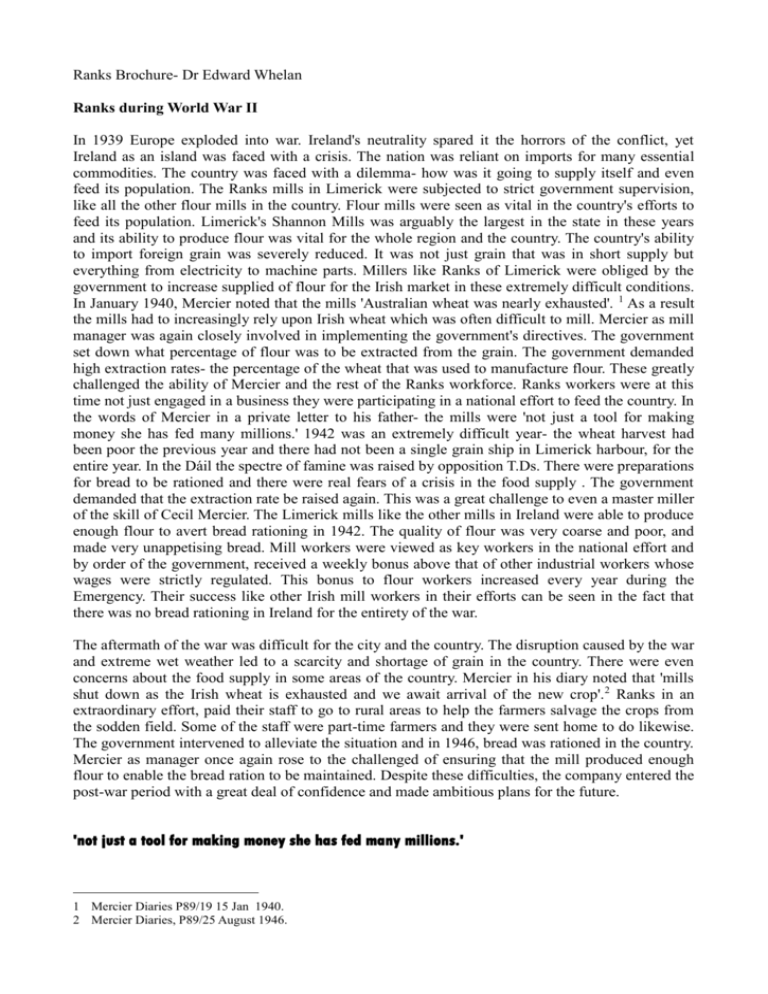
Ranks Brochure- Dr Edward Whelan Ranks during World War II In 1939 Europe exploded into war. Ireland's neutrality spared it the horrors of the conflict, yet Ireland as an island was faced with a crisis. The nation was reliant on imports for many essential commodities. The country was faced with a dilemma- how was it going to supply itself and even feed its population. The Ranks mills in Limerick were subjected to strict government supervision, like all the other flour mills in the country. Flour mills were seen as vital in the country's efforts to feed its population. Limerick's Shannon Mills was arguably the largest in the state in these years and its ability to produce flour was vital for the whole region and the country. The country's ability to import foreign grain was severely reduced. It was not just grain that was in short supply but everything from electricity to machine parts. Millers like Ranks of Limerick were obliged by the government to increase supplied of flour for the Irish market in these extremely difficult conditions. In January 1940, Mercier noted that the mills 'Australian wheat was nearly exhausted'. 1 As a result the mills had to increasingly rely upon Irish wheat which was often difficult to mill. Mercier as mill manager was again closely involved in implementing the government's directives. The government set down what percentage of flour was to be extracted from the grain. The government demanded high extraction rates- the percentage of the wheat that was used to manufacture flour. These greatly challenged the ability of Mercier and the rest of the Ranks workforce. Ranks workers were at this time not just engaged in a business they were participating in a national effort to feed the country. In the words of Mercier in a private letter to his father- the mills were 'not just a tool for making money she has fed many millions.' 1942 was an extremely difficult year- the wheat harvest had been poor the previous year and there had not been a single grain ship in Limerick harbour, for the entire year. In the Dáil the spectre of famine was raised by opposition T.Ds. There were preparations for bread to be rationed and there were real fears of a crisis in the food supply . The government demanded that the extraction rate be raised again. This was a great challenge to even a master miller of the skill of Cecil Mercier. The Limerick mills like the other mills in Ireland were able to produce enough flour to avert bread rationing in 1942. The quality of flour was very coarse and poor, and made very unappetising bread. Mill workers were viewed as key workers in the national effort and by order of the government, received a weekly bonus above that of other industrial workers whose wages were strictly regulated. This bonus to flour workers increased every year during the Emergency. Their success like other Irish mill workers in their efforts can be seen in the fact that there was no bread rationing in Ireland for the entirety of the war. The aftermath of the war was difficult for the city and the country. The disruption caused by the war and extreme wet weather led to a scarcity and shortage of grain in the country. There were even concerns about the food supply in some areas of the country. Mercier in his diary noted that 'mills shut down as the Irish wheat is exhausted and we await arrival of the new crop'. 2 Ranks in an extraordinary effort, paid their staff to go to rural areas to help the farmers salvage the crops from the sodden field. Some of the staff were part-time farmers and they were sent home to do likewise. The government intervened to alleviate the situation and in 1946, bread was rationed in the country. Mercier as manager once again rose to the challenged of ensuring that the mill produced enough flour to enable the bread ration to be maintained. Despite these difficulties, the company entered the post-war period with a great deal of confidence and made ambitious plans for the future. 'not just a tool for making money she has fed many millions.' 1 Mercier Diaries P89/19 15 Jan 1940. 2 Mercier Diaries, P89/25 August 1946.

